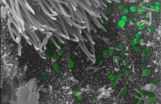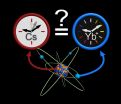(Press-News.org) CHICAGO - An important new study of men who have undergone testosterone replacement therapy has found that taking supplemental testosterone does not increase their risk of experiencing a major adverse cardiac event, such as a heart attack or stroke.
Researchers at the Intermountain Medical Center Heart Institute in Murray, Utah, which is the flagship facility for the Intermountain Healthcare system, studied 5,695 men between the ages of 53 and 71. The men, all patients at Intermountain Healthcare hospitals, had initial low testosterone levels.
Researchers found that men who received testosterone supplementation to achieve normal or high testosterone levels had reduced overall rates of major adverse cardiac events at one and three years after their initial low levels of testosterone were measured, compared to other men who had persistently low levels of testosterone. The lower rate of cardiac events included a reduction in the adjusted risk of death and a reduction in heart attacks.
The Intermountain Medical Center Heart Institute research team will report their findings at the 2014 American Heart Association in Chicago at 10 am, EST, on Tuesday, Nov. 18.
The study comes at an important time, as the U.S. Federal Drug Administration is evaluating the safety of testosterone supplementation and whether it is a risk to the health of older men.
According to the FDA, 1.3 million patients received a prescription for testosterone therapy in 2010. By 2013, the number rose to 1.3 million patients, with men ages 40 to 64 making up 70% of the prescriptions.
Smaller studies have been conducted on testosterone replacement therapy and its cardiovascular effects in men, with different results. While it is known that low levels of testosterone pose an increased cardiovascular risk, the risks versus benefits of supplementation have not been clearly identified.
The new findings that testosterone therapy is generally safe and does not increase the risk of major adverse cardiac events for men with low levels of testosterone, provides assurance to physicians across the country to use it when it's needed with less concern about its effect on their patients' heart health, say researchers.
"Testosterone therapy has become very popular in the United States in recent years," said Jeffrey Anderson, MD, a cardiologist at the Intermountain Medical Center Heart Institute, and lead researcher for the study. "With this study we are getting closer to defining the true associations between testosterone treatment and cardiovascular risks or benefits."
During clinical follow-up, men in the study were categorized as having persistently low testosterone levels (only 14% had been given supplements), normal levels or high levels (all were supplemented). All of the men had at least three years of subsequent follow-up observation. Researchers than assessed the impact on death, heart attack, or stroke of supplementation to normal or high levels after one and three years by reviewing electronic medical records.
"While this study provides reassurance about the safety of using supplementation to move from low to normal levels of testosterone, more studies, particularly large randomized studies, are needed," said Dr. Anderson.
INFORMATION:
Other members of the study include Heidi T. May, Donald L. Lappe, Tamir Bair, Viet Le, and Joseph B. Muhlestein.
WASHINGTON, DC - November 18, 2014 - Certain subtypes of avian influenza viruses have the potential to cause more severe disease in humans than other avian influenza subtypes and should be monitored carefully to prevent spread of disease, according to a study published this week in mBio®, the online open-access journal of the American Society for Microbiology.
The work, directed by researchers at the National Institute of Allergy and Infectious Diseases in Bethesda, Md., found that flu viruses expressing the low pathogenicity avian H1, H6, H7, H10 or H15 hemagglutinins ...
(WASHINGTON, November 18, 2014) - New evidence suggests that therapeutic plasma exchange and appropriate blood testing could help patients who are in urgent need of heart surgery, but have a history of an adverse reaction to the blood thinner heparin, according to a study, published online today in Blood, the Journal of the American Society of Hematology (ASH).
Many patients who take blood thinners will eventually require some form of heart surgery, which requires the administration of large quantities of heparin to prevent clots. Some patients who have taken heparin ...
Mycoplasma gallisepticum causes chronic respiratory disease in birds. The illness particularly affects domestic chicken and turkey flocks. The bacteria are especially life-threatening for the animals when they occur in combination with other infections. In order to control the spread of the disease, poultry farms in the EU must be proven free from Mycoplasma gallisepticum or face being closed.
Mycoplasma gallisepticum is related to the human pathogen Mycoplasma pneumoniae, the causative agent of human bronchitis and pneumonia. Mycoplasmas are among the world's smallest ...
New research by a team of European physicists could explain why the universe did not collapse immediately after the Big Bang.
Studies of the Higgs particle - discovered at CERN in 2012 and responsible for giving mass to all particles - have suggested that the production of Higgs particles during the accelerating expansion of the very early universe (inflation) should have led to instability and collapse.
Scientists have been trying to find out why this didn't happen, leading to theories that there must be some new physics that will help explain the origins of the universe ...
WINSTON-SALEM, N.C. - Nov. 18, 2014 - Although every person's DNA remains the same throughout their lives, scientists know that it functions differently at different ages.
As people age, drastic changes occur in their DNA methylation patterns, which are thought to act as a "second code" on top of the DNA that can lock genes in the on or off position. However, what the consequences of these changes are remains a mystery.
To begin deciphering this process, scientists at Wake Forest Baptist Medical Center studied methylation patterns in the blood cells of 1,264 persons ...
This news release is available in German.
Are the fundamental constants really constant? Recent investigations carried out at the Physikalisch-Technische Bundesanstalt (PTB) have shown that one essential fundamental constant - namely the mass ratio of protons to electrons - can have changed only by a maximum of one part in a million over the age of our solar system (i.e. extrapolated over approx. 5 billion years). Previously, scientists deemed the possible changes to be twice as high. To obtain this result, physicists from PTB compared caesium and ytterbium atomic ...
Spices and herbs are rich in antioxidants, which may help improve triglyceride concentrations and other blood lipids, according to Penn State nutritionists.
Triglyceride levels rise after eating a high-fat meal -- which can lead to an increased risk of heart disease. If a high-antioxidant spice blend is incorporated into the meal, triglyceride levels may be reduced by as much as 30 percent when compared to eating an identical meal without the spice blend. The spiced meal included garlic powder, rosemary, oregano, cinnamon, cloves, paprika, turmeric, ginger and black pepper.
Sheila ...
Scientists have discovered how a gene mutation can lead to diseases that occur when the immune system attacks the body by mistake.
Understanding how these mechanisms work could help scientists to develop new treatments for autoimmune diseases such as Lupus and neurodegenerative conditions including Motor Neurone Disease.
Researchers found that a mutation in the gene - called ADAR1 - causes a defect in an alarm system in our cells that normally protects the body from viruses and other infections. This means that the alarm system is tripped by the cell's own molecules, ...
A new method for examining the Ebola virus genome could make surveillance quicker and cheaper for West African nations, and help detect new forms of the virus. The detailed procedure is being shared with the research community along with the study paper, which is freely available in the open access journal Genome Biology.
With over 13,000 cases and nearly 5,000 deaths in eight affected countries, the current Ebola outbreak in West Africa is the largest to date, the first to spread to densely populated urban areas, and represents the first time the virus has been diagnosed ...
Celiac disease patients suffer from gluten intolerance and must adjust to a life without gluten from food sources like wheat, rye and barley. There is no treatment of the disease except lifelong gluten-free diet, but now a Danish/Norwegian research team publishes new research, that may lead to the development of a drug against the disease.
Gluten intolerance is often caused by celiac disease, which makes the human organism sensitive to gluten proteins from certain cereals. No known drug can cure the disease or make the patient able to eat gluten again, and therefore the ...

